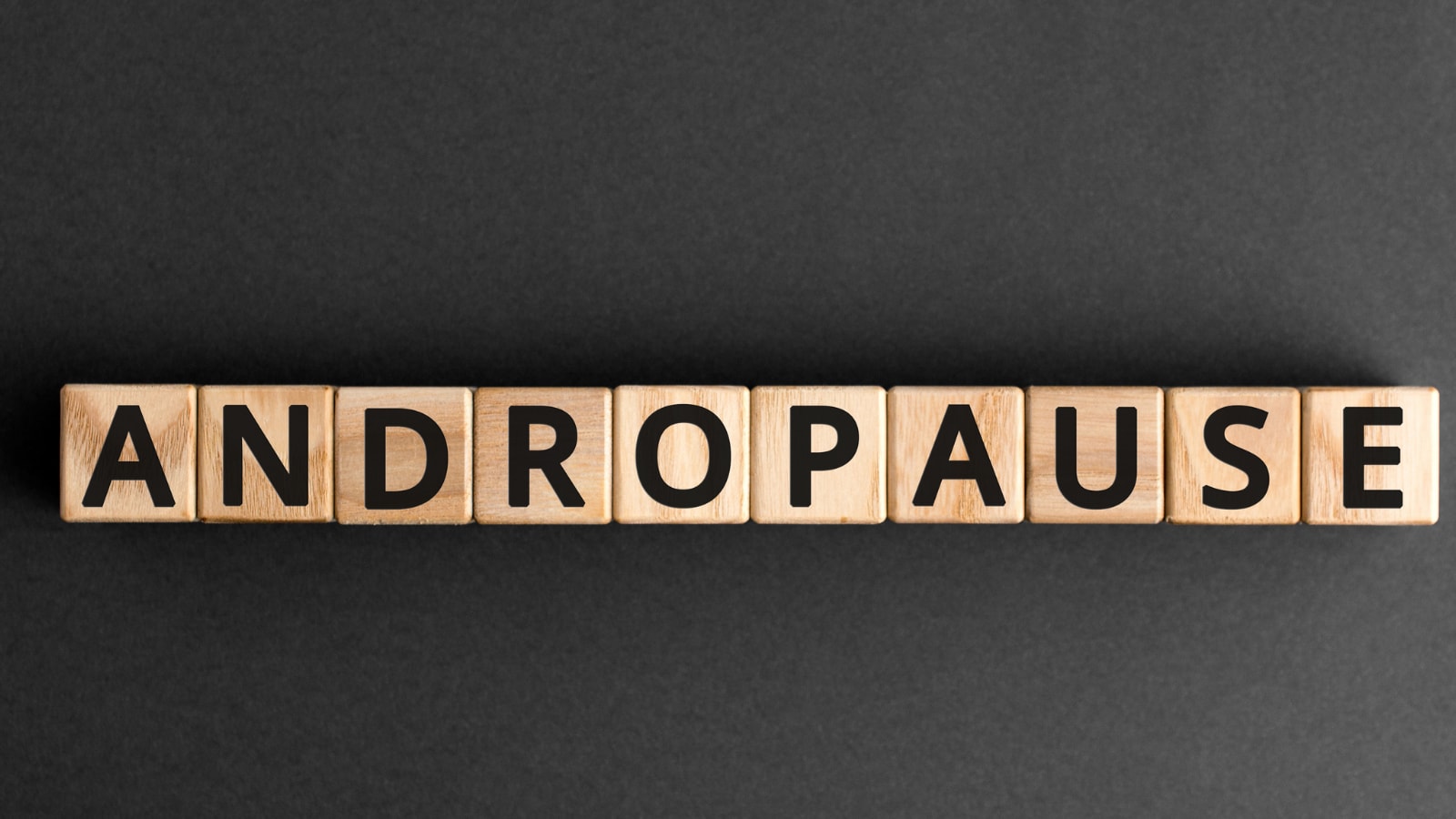Men Have It Too: All You Need to Know about Andropause

Sex may permeate our popular culture, but conversations about it are still associated with stigma and shame in Indian households. As a result, most individuals dealing with sexual health issues or trying to find information about sex often resort to unverified online sources or follow the unscientific advice of their friends.
To address the widespread misinformation about sex, News18.com is running this weekly sex column, titled ‘Let’s Talk Sex’. We hope to initiate conversations about sex through this column and address sexual health issues with scientific insight and nuance.
The column is being written by Sexologist Prof (Dr) Saransh Jain. In today’s column, Dr Jain explains Andropause, its symptoms, causes and treatments.
Almost everyone is familiar with the fact that when women reach middle age, their bodies begin to go through a process known as menopause. However, did you know that a percentage of men go through a similar development? This process, known as andropause, obviously has some distinct differences from menopause, but there are some similarities in symptoms too.
Andropause decreases your sex drive and makes you feel weak and moody. It involves a drop in testosterone production in men who are 50 or above. In men, testosterone is a hormone produced in testes. It does more than just fuelling your sex drive. It also fuels changes during puberty, fuels your mental and physical energy, maintains your muscle mass, regulates your fight-or-flight response, and regulates other key evolutionary features.
Andropause differs from menopause in several ways. For one thing, not all men experience it. Second, it doesn’t involve a complete shutdown of your reproductive organs. However, sexual complications may arise as a result of your lowered hormone levels.
Symptoms of Andropause
Andropause can cause physical, sexual and psychological problems. They typically worsen as you get older. They can include:
• Erectile dysfunction
• Loss of libido or sexual drive
• Depression or sadness
• Low energy
• Difficulty in concentrating
• Insomnia or difficulty in sleeping
• Reduced muscle mass and feelings of physical weakness
• Gynecomastia or development of breasts
• Infertility
You may also experience swollen or tender breasts, decreased testicle size, loss of body hair or hot flashes. Low levels of testosterone associated with andropause have also been linked to osteoporosis. This is a condition where your bones become weak and brittle. These are rare symptoms. They typically affect men at the same age as women entering menopause.
Causes of Andropause
Whereas menopause in women sets on relatively quickly as production of hormones estrogen and progesterone stops, there’s a more gradual shift in men. Starting in mid-30s, men lose about 1.6 per cent of testosterone a year, which is usually a natural, unproblematic process. However, symptoms can develop if you don’t have enough of it.
Some experience late-onset hypogonadism (LOH), which is characterised by very low levels of testosterone in older men due to natural decline in that hormone. In many cases, however, the symptoms of andropause can be attributed to other factors and not necessarily to reduction in testosterone levels. This is at the root of controversies surrounding the condition.
How is Andropause Diagnosed?
If you’ve been suffering from these symptoms and are above 35, it is certainly possible you may be going through andropause. It’s important to seek medical attention. Diagnosis begins with a careful evaluation of your health status, as well as a physical evaluation; a mental health evaluation may also be called for. This includes:
• Assessment of medications you’re taking or treatments you’re undergoing
• Tests for signs of metabolic syndrome (cholesterol, blood pressure and blood sugar)
• Physical examination of testicles, hair growth or any gynecomastia
• Checking any family history of low testosterone
• Checking weight status and body mass index (BMI)
Blood tests can help determine if you have low levels of testosterone and assess any other conditions that may be causing the issue. Common tests include:
• Testosterone level tests
• Luteinising protein
• Prolactin tests
• Blood haemoglobin (Hgb)
How Andropause is Treated?
Unless andropause is causing you severe hardship or disrupting your life, you’ll probably manage your symptoms without treatment. The biggest hurdle in treating andropause may be talking to your doctor about your symptoms, if you are too shy or intimidated by such subjects. The most common type of treatment for symptoms of andropause is making healthier lifestyle choices. For example, your doctor might advise you to:
• Eat healthy
• Get regular exercise
• Get enough sleep
• Reduce stress
These lifestyle habits can benefit all men. After adopting these habits, men who are experiencing symptoms of andropause may see a dramatic change in their overall health. If you’re experiencing depression, your doctor may prescribe antidepressants, therapy and lifestyle changes.
Hormone replacement therapy is another treatment option. However, it’s very controversial. Like performance-enhancing steroids, synthetic testosterone can have damaging side effects. For example, if you have prostate cancer, it may cause your cancer cells to grow. If your doctor suggests hormone replacement therapy, weigh all positives and negatives before making your decision.
It’s normal to experience a decline in your testosterone levels as you get older. For many men, the symptoms are manageable, even without treatment. If your symptoms are causing you hardship, speak to your doctor.
Read all the Latest News , Breaking News and IPL 2022 Live Updates here.
For all the latest lifestyle News Click Here

